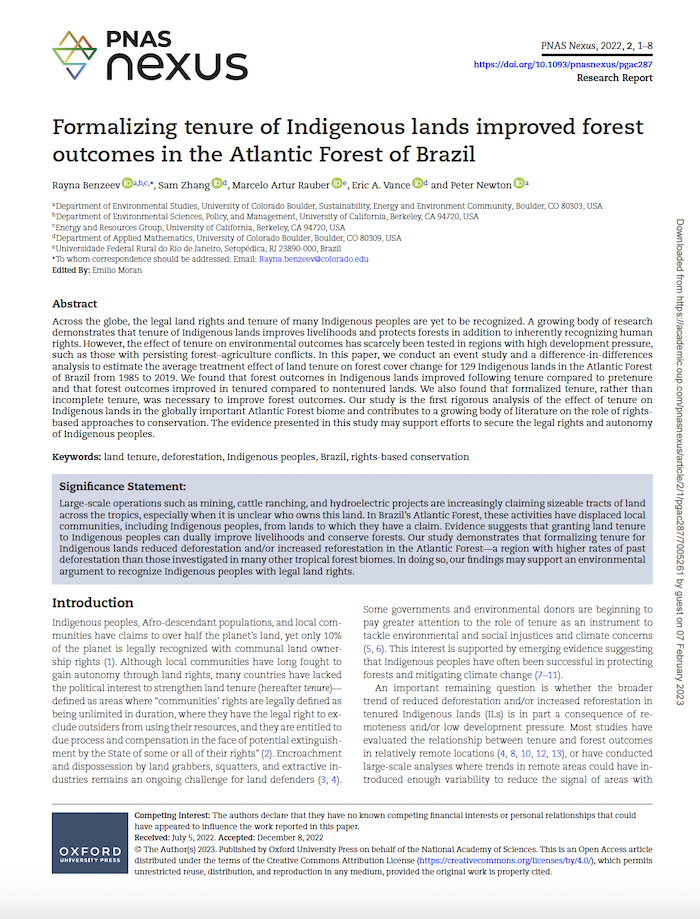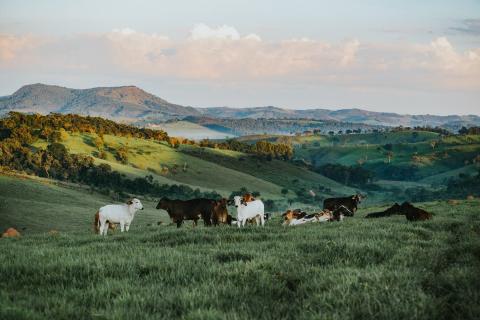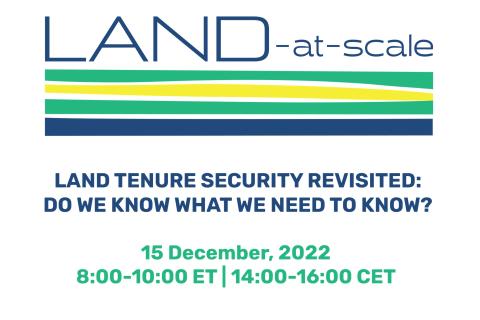
Topics and Regions
Neil Sorensen joined the Land Portal as its Communications Specialist in October 2015. He has extensive experience leading communications for international organizations and developing relationships with civil society, donors, intergovernmental agencies, the media and the private sector. Previously, Neil worked for the International Fund for Agriculture Development (IFAD) as a Governing Bodies Officer and Strategic Adviser to the Secretary of IFAD. He has also led communications for three international organizations, including the International Land Coalition, the International Federation of Agricultural Producers (IFAP) and the International Federation of Organic Agriculture Movements (IFOAM). He holds a Master’s degree in Global Diplomacy from the University of London School of Oriental and African Studies (SOAS) as well as a Bachelor’s degree with a double major in German and Sociology from St. Cloud State University.
Details
Location
Contributions
Displaying 181 - 190 of 1156Formalizing tenure of Indigenous lands improved forest outcomes in the Atlantic Forest of Brazil
Across the globe, the legal land rights and tenure of many Indigenous peoples are yet to be recognized. A growing body of research demonstrates that tenure of Indigenous lands improves livelihoods and protects forests in addition to inherently recognizing human rights. However, the effect of tenure on environmental outcomes has scarcely been tested in regions with high development pressure, such as those with persisting forest–agriculture conflicts.
IOS-Fair Transitions-LANDac International Conference 2023
We are happy to announce the joint IOS-Fair Transitions-LANDac International Conference at the crossroads of the fair transitions and land governance debates in the context of climate change. The conference is structured around the joint challenge of finding ways to make transitions fair and inclusive, for human and non-human life.
How Illegal Mining Caused a Humanitarian Crisis in the Amazon
Uncovering Land Governance Challenges in 9 African Countries: NELGA’s Overview of Pastoralism and Small-Scale Farming
Growing the Field
Land rights are ascendant across the development sector. Movements addressing women’s empowerment, poverty, social justice, food security and climate change are all increasingly turning to land rights to strengthen their cause. In 2022, renowned philanthropist MacKenzie Scott joined these efforts by making an unprecedented $20 million investment in our work. Ms. Scott’s generous gift represents a profound endorsement of the power of land rights to improve the lives of women, men, and communities around the world.
Call for proposals: Supporting uses of GDB data to advance the knowledge on data for public good
Pathways for the recognition of customary forest tenure in the Mekong region
Globally, about 2 billion people claim ownership of their homes and lands through a customary tenure system. Customary tenure has long been insecure and is under growing pressure in many places. But it is also increasingly recognized through a variety of mechanisms, formal and informal. RECOFTC released a new report on the recognition of customary tenure of communities living in forested landscapes in Cambodia, Lao People’s Democratic Republic, Myanmar and Viet Nam. It also includes a case study from Thailand.
Gender, tenure and customary practices in forest landscapes
This report is based on 10 research projects carried out in 18 sites in seven countries: Cambodia, Indonesia, Lao PDR, Myanmar, Nepal, Thailand and Viet Nam. The studies formed the basis of ten informational briefs from the research sites published together with the report (available here: https://www.recoftc.org/publications/0000432). Each study documented the legal frameworks and customary practices that affect indigenous women’s rights to access and manage forest resources and create restrictions on those rights.
Webinar Recap: Land Tenure Security Revisited
On 15 December 2022 the LAND-at-scale Knowledge Management team hosted a webinar Land tenure security revisited: Do we know what we need to know? that presented the preliminary findings of a study on tenure security authored by Guus van Westen, and Jaap Zevenbergen. The presentation of the study was followed by breakout sessions on tenure security and its relationship to women's land rights, the role of the state, land conflicts, and economic development facilitated by land experts and panelists who reported back to the plenary on the discussions with their respective reflections on the findings of the study.
Land tenure security revisited: Do we know what we need to know?
Strengthening security of tenure is considered a key outcome of the LAND-at-scale program as a pre-condition to improved livelihoods, resilience, and sustainable resource use. LAND-at-scale interventions employ a range of tools to achieve tenure security, in particular land mapping and registration. Despite the popularity of such interventions, the assumptions underpinning the impact pathways from registration to tenure security and derived outcomes such as improved livelihoods are not always built on a solid evidence base.










